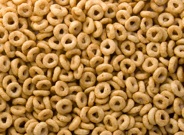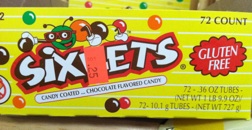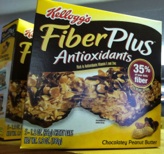
Recently I had the opportunity to attend one of the largest natural product expo’s in world. The purpose of this expo is to get buyers who are looking for healthy alternative products in one location together with sellers who have products they are trying to expand into larger markets.
You cannot imagine the sheer size of this event. Two stories and 15 football fields might fit into the building we were in. An ocean of products as far as the eye can see from large companies as big as Clif Bar and Seventh Generation to small local Portland based companies like Glad Rags and Imbue (my friends who created the “Pain Relief Patch” that we were there representing.)
There were several stipulations set by the expo about who was appropriate to attend this event based on how sustainable, organic, and “natural” their products are.
However, when I arrived at the expo I was surprised at how many of the companies there in no way represented these qualities. What surprised me the most was the amount of trash that was created by the event itself. By the end of the weekend it might have taken a small landfill to deal with the waste accumulated by the booths- especially the booths of the larger companies attending.
What I would like to address briefly in this blog are the words that were so casually coming out of these vendors mouths but seemed to be incongruent with the practices of the companies they are representing.
“Natural”
I cannot tell you how many people stopped me while walking through this wasteland of “healthy” products saying “Would you like to try our product? It’s all NATURAL!” I wanted to respond to them “So is botulism, or nicotine, or crude oil.” I find these days this word natural to be thrown around like we should be impressed when, especially in the food and drug world, it does not mean much.
Many Natural flavors for example are still created in a lab by scientists called “flavorists” and the products they create might be less than appealing if you knew the process and means by which they are created. This is one version of the term Nutritionism which we will be exploring.
“Organic”
Though the organic movement has made leaps and bounds in the industry to create clearer and more ethical terms for companies to label a product as organic, there are still many issues. The term “organic” is sometimes misleading. Unfortunately companies like Whole Foods brands import many of their products like frozen fruits and vegetables from China. China’s quality control of foods like produce is in no way up to par with USDA standards. Also, even if they were, it is in no way sustainable to be shipping our food across the world from China.
“Sustainable”
I had a friend who was recently asked at the checkout stand at New Seasons “Are these the sustainable macadamia nuts or the regular ones.” What she meant by that is Organic. The truth is, as much as I love macadamias… and I do LOVE them, there is nothing sustainable about flying or shipping nuts from Australia to Portland… or frozen fruit from China to California to Portland.
A lot of these companies who are creating so called “Healthy” and “Natural” products are doing so at the detriment to our planets resources. It is important to look at the companies you support and the business practices they execute. Don’t take the packaging at face value. Take a few moments and do some research especially with the products you buy on a regular basis.
A similar argument I hear people make is with the meat industry. As much as I am in complete support of farmers taking on the difficult but noble task of raising organic, grass fed, humanly treated animals, there is nothing sustainable about our population eating meat every day- “organic” or not. The raising of animals for human consumption is one of the most unsustainable practices we currently observe on this planet. Grass fed beef and free range chickens are agreeably a healthier choice by far. However, no matter how healthy you can debate they are I would argue that they are to be consumed on special occasions and definitely not every day. Not if we want our species to survive on this beautiful planet.
“Nutritionism” is a word being thrown around in the holistic health world. It serves as a reminder that as much as we like to believe the products we buy are made by people who truly have our health in their best interests, unfortunately many of the big companies and especially the largest companies are money making machines with profit margins and share holders they need to appease.
These companies are often just jumping on the band wagon using terms they know will sell products because they are popular in the current trends of selling food.
Remember in the nineties when healthy meant “fat free?”
Now the health interested populous is impressed by words like Organic, Gluten Free, and Vegan. Sadly the items that have these words so proudly printed on their labels are not always healthy for us.
Here is a couple extreme and humorous examples of companies using nutritionism to sell unhealthy products:
Other examples are the alternative “soy” or “grain” based sausages, hamburger patties, or chicken nuggets, etc. on the “health food store” shelves. These are still highly processed materials. As are all of the boxed cereals we buy. These products may contain less preservatives and artificial colors but it still took a huge amount of processing to turn what was once several pieces of grain and a few other ingredients and turn them into this:

It’s the quiet products in the store like a bag of oats, or beans, or a head of broccoli. These silent hero’s who sit in the store and say nothing about their health benefits except where they were grown (hopefully somewhere within a few hundred miles.)
When in doubt choose whole foods. NO not the store (just because it is sold at “Whole Foods” does not make it a whole food or even good for you.) Look at a food item and ask yourself how many processes did it take to get this from the earth on the tree, vine, animal, or stalk it grew on to the current state it’s in? Also, don’t take health claims at face value. They are often hiding more insidious things that you might find if only you would turn the product and read the label.
A great resource for overcoming the deceit of nutritionsim is a book called Food Rules by Michael Pollan. It’s an easy guide full of well thought out tips on how to eat better and avoid the food industries’ misleading advertising.
Take charge of what you put into your body and what you feed to your children. It may seem overwhelming in the beginning but choose your battles. Start small and make one small change at a time. Eventually you will form an arsenal of healthy habits that will benefit you for a lifetime. Remember it’s not the little “every once and awhile” choices that damage your health. It’s the things you do every day. Make mostly healthy choices most of the time and the rest of the time don’t even think about it.
In conclusion pay a little more attention to what your buying, who your supporting, and what your putting on and into your body and environment. Do your best to support local business, community agriculture, and organic farming. Avoid unhealthy products with misleading health claims, and most of all always find a way to express gratitude in your life. It’s your attitude more than anything else that will ultimately determine you’re health.
Remember life should be enjoyed. If something is out of balance it’s time to make a change.


